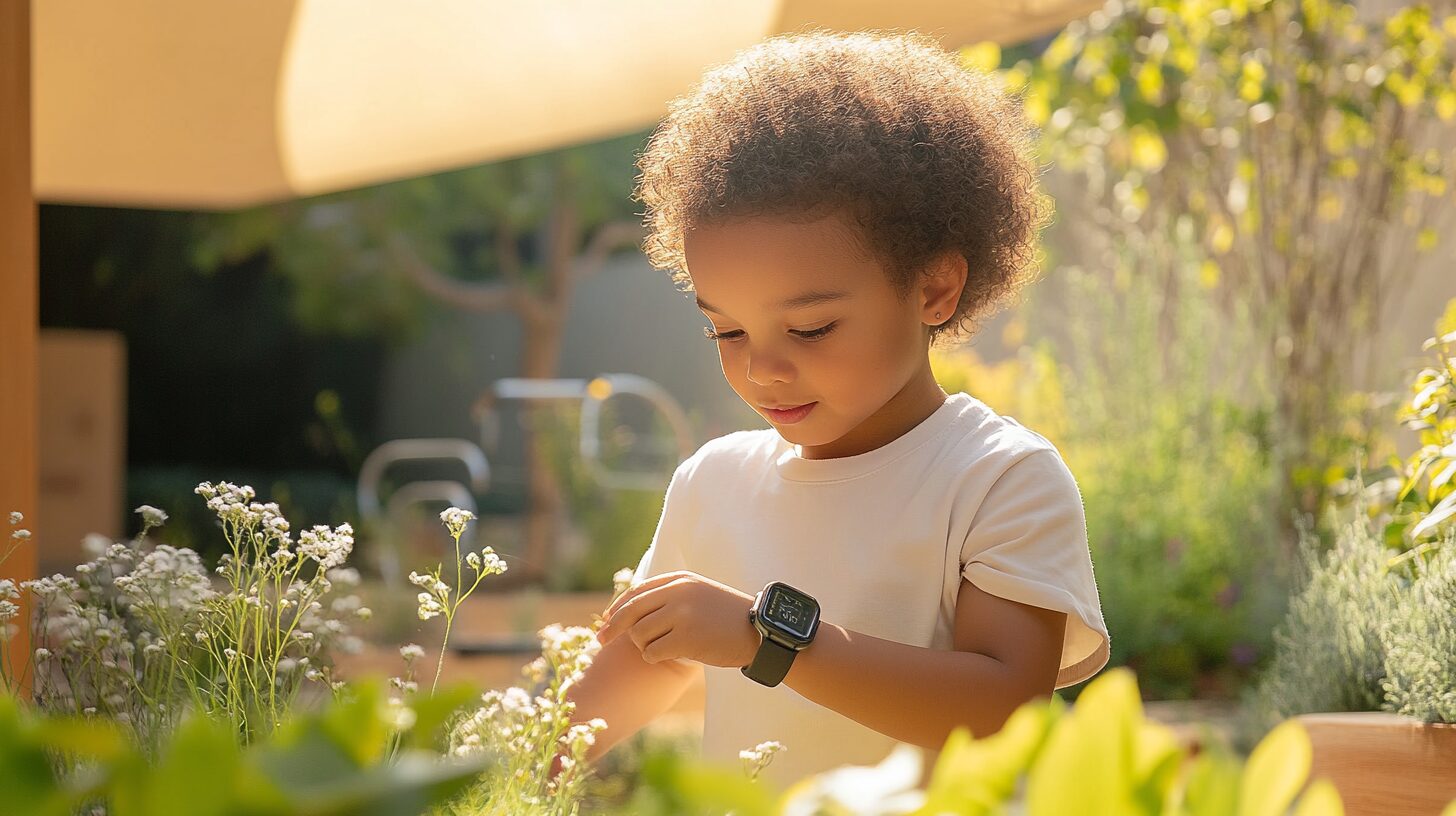Understanding GPS Trackers for Kids with Special Condition
As a parent or caregiver of a child with special needs, ensuring their safety is a top priority. One innovative solution that has gained popularity in recent years is the use of GPS trackers designed specifically for kids with special needs. These devices offer real-time location tracking, allowing you to monitor your child’s whereabouts and ensure their well-being at all times.
GPS trackers for kids with special needs are more than just location tracking devices. They come equipped with a range of features tailored to the unique needs of children with conditions like autism, Down syndrome, or other developmental disabilities. From geofencing capabilities to emergency alerts and two-way communication, these trackers provide a comprehensive safety solution for families.
The Importance of Ensuring Child Safety
Children with special needs often face challenges that can put them at a higher risk of wandering or getting lost. According to a study published in the journal Pediatrics, nearly half of children with autism spectrum disorder (ASD) have a tendency to wander or elope from safe environments. This behavior can lead to potentially dangerous situations, making it crucial for parents and caregivers to have effective safety measures in place.
GPS trackers offer a reliable solution to this concern, providing real-time location data and peace of mind for families. By knowing their child’s whereabouts at all times, parents can quickly respond in case of an emergency, minimizing the risk of harm and ensuring their child’s safety.
Features of Specialized GPS Trackers
GPS trackers designed for kids with special needs come equipped with a range of features that cater to their unique needs. Some of the most important features to look for include:
- Real-time Location Tracking: The ability to monitor your child’s location in real-time is the core functionality of these devices. This feature allows you to quickly locate your child in case they wander off or get lost.
- Geofencing: This feature enables you to set up virtual boundaries or “safe zones” around specific locations, such as your home or school. If your child crosses these boundaries, you’ll receive an immediate alert, allowing you to take prompt action.
- Two-way Communication: Many GPS trackers for kids with special needs offer two-way communication capabilities, allowing you to send voice messages or instructions to your child directly through the device.
- SOS Button: An SOS or panic button on the tracker enables your child to quickly alert you in case of an emergency or distress situation.
- Activity Monitoring: Some advanced trackers can monitor your child’s activity levels, providing valuable insights into their daily routines and behaviors.
- Tamper-resistant Design: These trackers are designed to be durable and tamper-resistant, ensuring they remain securely attached to your child.
By leveraging these features, GPS trackers can provide a comprehensive safety solution tailored to the unique needs of children with special needs.
Real-Life Example: Missing Child Found with GPS
The importance of GPS trackers for children with special needs is highlighted by real-life incidents where these devices have played a crucial role in ensuring safety. In 2019, a 6-year-old boy with autism went missing during a family outing in California. Thanks to the GPS tracker he was wearing, authorities were able to quickly locate him and reunite him with his family, avoiding any potential harm.
This incident serves as a powerful reminder of the invaluable role GPS trackers can play in ensuring the safety of children with special needs. By having access to real-time location data, parents and caregivers can take immediate action in case of an emergency, potentially saving lives.
Choosing the Right GPS Tracker for Your Child
With the variety of GPS trackers available in the market, it’s essential to choose the right one for your child’s specific needs. Here are some key factors to consider:
- Evaluate Specific Needs: Assess your child’s individual needs, including their mobility, communication abilities, and any associated medical conditions. This will help you identify the features that are most important for your child’s safety.
- Research Available Features: Look for GPS trackers that offer features such as real-time tracking, geofencing, two-way communication, and SOS alerts. Consider which features are most relevant to your child’s needs.
- Consider Durability: Opt for trackers that are durable, waterproof, and can withstand your child’s activities and potential accidents.
- Check Compatibility: Ensure that the tracker is compatible with your smartphone or other devices for easy monitoring and control.
- Review Battery Life:Look for trackers with long battery life. They avoid frequent recharging, which can be a hassle and could risk your child’s safety.
- Read Reviews: Take time to read reviews. Learn from other parents. They have experiences with different GPS trackers for kids with special needs..
Carefully evaluate your child’s needs and the options. Then, you can choose a GPS tracker that provides the necessary safety features. It will give peace of mind to your family.
Setting Up and Using a GPS Tracker Effectively
Once you’ve chosen the right GPS tracker for your child, it’s important to set it up and use it effectively to maximize its benefits. Here are some tips:
- Geofencing Setup: One of the most valuable features of GPS trackers is geofencing. Follow the steps from the manufacturer. Use them to set up “safe zones” around places like your home, school, or other familiar areas. This will ensure you receive alerts if your child crosses these boundaries.
- Test and Adjust: After setting up the geofencing, test it by having your child move in and out of the safe zones. Adjust the boundaries or settings as needed to ensure accurate alerts.
- Integrate with Specialized Apps: Many GPS trackers for children with special needs integrate with specialized apps that offer additional features and functionality. Explore these apps and take advantage of features like behavior tracking, visual schedules, and communication tools.
- Establish Communication Protocols: If your tracker offers two-way communication, establish clear protocols for how and when you will communicate with your child through the device. This can help ensure effective communication in case of an emergency.
- Regularly Check Battery Life: Make it a habit to regularly check the tracker’s battery life and charge it as needed. A dead battery can compromise your child’s safety.
By following these steps and best practices, you can ensure that the GPS tracker is being used effectively and providing the intended safety benefits for your child with special needs.
Addressing Privacy Concerns and Legal Considerations
While GPS trackers offer invaluable safety benefits for children with special needs, it’s important to address potential privacy concerns and legal considerations. Here are some key points to keep in mind:
- Informed Consent: Depending on your child’s age and cognitive abilities, it’s advisable to involve them in the decision to use a GPS tracker and explain the purpose and benefits. This can help foster trust and understanding.
- Data Privacy: Research the data privacy policies and practices of the GPS tracker manufacturer. Ensure that your child’s personal data and location information are securely stored and protected.
- Legal Considerations: Be aware of local and national laws about GPS trackers. This is especially important for minors or people with special needs. Consult with legal professionals if necessary.
- Responsible Use: Use the GPS tracker responsibly and only for the intended purpose of ensuring your child’s safety. Avoid misusing the device or violating your child’s privacy unnecessarily.
By addressing these concerns and following best practices, you can leverage the benefits of GPS trackers while respecting your child’s privacy and adhering to legal requirements.
Integrating GPS Trackers into a Comprehensive Safety Plan
While GPS trackers are invaluable tools for ensuring the safety of children with special needs, they should be integrated into a comprehensive safety plan. Here are some additional strategies to consider:
- Home Safety Measures: Implement home safety measures such as door alarms, window locks, and secure fencing to prevent your child from wandering off or leaving the premises unsupervised. These measures can complement the GPS tracker and provide an additional layer of security.
- Caregiver Training: Ensure that all caregivers, including family members, teachers, and support staff, are trained in proper safety protocols and the use of the GPS tracker. This can help ensure a consistent and effective approach to your child’s safety.
- Community Awareness: Consider reaching out to your local community, such as neighbors, law enforcement, and emergency services, to raise awareness about your child’s special needs and the importance of being vigilant. This can help create a supportive network in case your child goes missing.
- Identification and Contact Information: Ensure that your child is wearing proper identification, such as a medical ID bracelet or clothing tags, with your contact information. This can aid in their safe return if they become separated from you or their caregiver.
- Regular Safety Drills: Conduct regular safety drills with your child to reinforce safe behaviors and familiarize them with the GPS tracker and its features. This can help them understand the importance of the device and how to use it in case of an emergency.
Adding GPS trackers to a safety plan that includes these strategies. This way, you can create a multi-layered approach to keeping your special needs child safe.
Educational and Independence Benefits of GPS Trackers
In addition to their primary safety function, GPS trackers for kids with special needs can also offer educational and independence benefits. Here are some ways these devices can positively impact your child’s development:
- Enhanced Safety and Independence: By knowing that their whereabouts are being monitored, children can gain confidence and independence to explore their surroundings within safe boundaries. This can foster their sense of autonomy and personal growth.
- Learning Opportunities: GPS trackers allow parents and caregivers to create safe boundaries for their child’s exploration, providing opportunities for learning and growth. Children can engage in educational activities and experiences while remaining within a secure perimeter.
- Skill Development: The use of GPS trackers can help children with special needs develop important skills such as following instructions, understanding boundaries, and recognizing safe zones. These skills can be valuable for their overall development and independence.
- Peace of Mind for Parents: Knowing that their child is safe and secure allows parents and caregivers to have peace of mind, reducing stress and anxiety. This improved well-being can positively impact their ability to support their child’s growth and development.
Families can use GPS trackers’ safety features. They can use them to create an environment. The environment fosters independence, learning, and personal growth for children with special needs. The environment is still secure and monitored..
Conclusion
GPS trackers for kids with special needs are a game-changer for their safety. The devices have features like real-time location tracking, geofencing, and two-way communication. They also have SOS alerts. They provide a full solution tailored to the unique needs of children. These needs may be due to conditions like autism, Down syndrome, or other disabilities.
Carefully evaluate your child’s needs. Then, choose the right GPS tracker. Add it to a safety plan. Doing this will give you peace of mind. This will empower your child to explore confidently. Additionally, these devices offer educational and independence benefits, fostering personal growth and skill development.
Addressing privacy and legal issues is essential. But, the benefits of GPS trackers for special needs children are undeniable. Real-life incidents have demonstrated their invaluable role in ensuring safety and potentially saving lives.
If you’re a parent or caregiver of a child with special needs, consider investing in a GPS tracker as part of your comprehensive safety strategy. Explore the available options, read reviews, and choose a device that best suits your child’s needs. By doing so, you can provide them with the safety, security, and independence they deserve.





